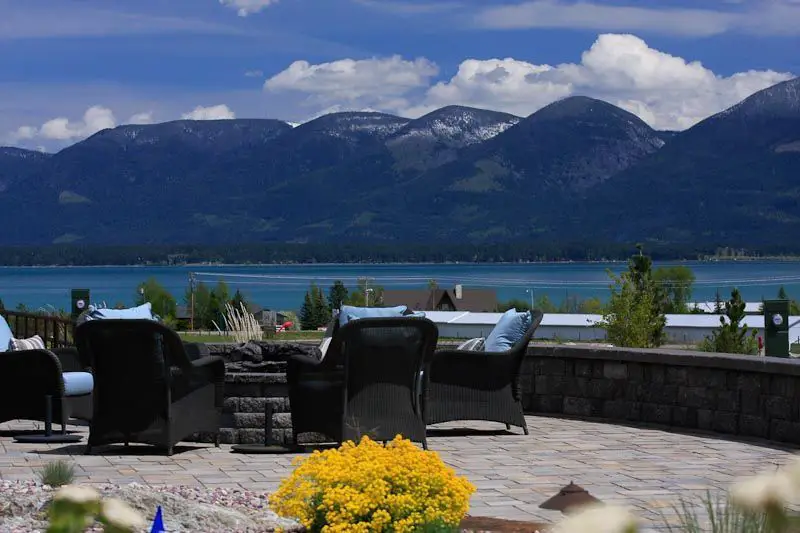1. Must-Have Supplies
If you just pulled off the lot in your new RV, you don’t need much. Gas in your tank to make it home or to a storage lot is about it.
Most people don’t think about what is needed for your RV to function or expect that those supplies are included.
When they get ready for that first trip out on an adventure reality sets in. You have a lot of items that you need to purchase just for the basics.
Even after buying all the supplies and heading down the road, something always slips our minds.
Here are the basics that almost all new RV owners will need to buy (or should buy) on top of the RV itself.
- Sewer hose
- Sewer hose attachments (clear elbow is a great tool)
- Surge protector (campground electrical is often unreliable)
- Water pressure regulator (campground water pressure can damage RV water system)
- Water filter (as with electric, water quality is often unreliable)
- Leveling Blocks (purchase or build your own)
- Stabilizers (unless your RV comes with levelers this is needed to reduce movement)
- Extensions for sewer hose and power cord (in case hookups are a little further than planned)
10 Must have items every new RV needs to think about
2. A New Mattress
Some people can sleep anywhere, on anything, but the other 99% of us need a quality mattress.
On the first trip out sleeping on the manufactures mattress, you will know exactly what I am talking about. They don’t give you the best quality mattress when you buy a new RV.
Unless you have this upgraded at the dealership, you will most likely need to invest in a new one soon.
RV mattresses usually come in odd shapes and sizes and buying one can be difficult at best.
How to get a good night’s sleep in an RV
Sleep EZ America has quality custom-cut mattresses to fit most replacements

3. Repair Costs
I am sure you have heard horror stories from other RV owners. It is just a reality that RV’s breakdown and systems fail.
When you drop a small thin-walled house on top of a truck and travel down the road, things are going to shake loose.
Common RV problems you don’t want to see
Even with a new RV, you are going to have items that need to be fixed. If you happen to be mechanically inclined, you can probably repair these yourself rather cheaply.
You could also get an extended warranty, but those are not cheap and often cost more than the repairs themselves.
An alternative to an extended warranty is to take the cost of the warranty and put those funds in an interest savings account. use from this account when needed and if you don’t need it, no harm no foul. If you are lucky, you could have a nice little nest egg to use down the road.
Myths about extended warranties, what you need to know
The point I am trying to make is to make sure to allow in your budget for these repairs.
4. Insurance Vehicle and Health
RV Insurance
How you RV is the biggest question for what RV insurance you will need.
Do you live in your RV? or Just a Weekend Warrior?
When searching for RV insurance, find a reputable agent that you trust. Research the company itself for the types of insurance they provide and what people are saying about their servicing.
For a great RV insurance company that prides itself on putting the customer first, try Charlotte Insurance and its RV team. Talk to a real local agent and not just another customer service call center.
Health Insurance
I am not going to try and dig too deep into health insurance because there are just too many variables. This is also more for full-time RV people that have retired or have no employee benefits to speak of.
Health insurance costs have skyrocketed over the years and you will want to get your ducks in a row before you head out on the highway.
- Who will you use for your doctor
- How will you get prescriptions if needed
- If you have regular visits to the doctor, how will you set those visits up if traveling
- what will we do in an emergency
5. Entertainment
At night or on a rainy day, we often need some indoor entertainment to tide us over. You may also be a traveler that works remotely and a solid connection is needed to perform your job.
Internet WiFi equipement
- Cellphones
- WiFi extenders
- Satellite dish
Internet and WiFi service
Either free or paid WiFi hotspots
The cost for your RV internet will depend on a variety of factors including which service you use, your location, and whether or not you’ll need a Wi-Fi extender or a cell booster. In some cases, you may be able to take advantage of free internet through free public hotspots.
RV internet can be one service or a combination of them, including satellite, mobile hotspot, or free public or paid Wi-Fi.
AT&T
AT&T has prepaid mobile hotspot and tablet plans available that work if you are in a serviceable area. The plans range from 20 GB of data for $25/mo. to 100 GB for $90/mo.
AT&T’s In-Car Wi-FI Data Plans start at $20/mo. They also offer six-month and annual plans and a 30-day plan to ensure coverage while you’re on a car trip.
Verizon
Verizon is a popular option for travelers and in 2021, they introduced more travel-friendly options for hot-spot users. The plans range from $20 for $15 GB to $110 for 150GB of data. You just need to be in a Verizon-serviceable area to use your data.
T-Mobile
T-Mobile has hotspot mobile internet plans that include unlimited texting and data, starting at $50/mo.
Cellular Internet
Nomad
Nomad Internet takes away the need for a mobile hotspot with one carrier by providing cellular internet from available carriers. For traveling nomads, this can be a great option for RV internet service. With a starting price of $149/mo. after a $99 one-time membership fee, you can enjoy unlimited data from the largest rural internet provider currently.
Satellite
Starlink
Starlink offers a pay-as-you-go plan for travelers for $135/mo. It’s easy to pause service for when you back home, too. Everything is provided to you to easily set up your RV service, you just need a clear view of the sky. Starlink isn’t configured yet to be mobile, however, so you must be in a stopped and fixed position to access the service. Check out your availability here.
Viasat and HughesNet
Two major satellite providers in the U.S. are Viasat and HughesNet. Both providers are available in every state. Viasat and HughesNet both offer data plans that won’t cut you off after you reach your limit but will sometimes throttle your speeds.





One thought on “New RV: 5 Costs you need to keep in mind”